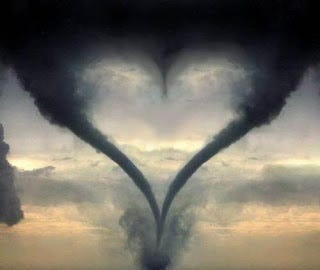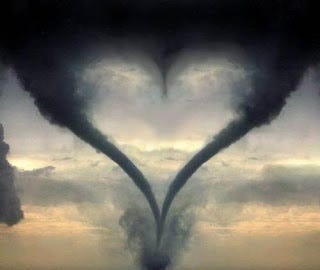*

They weren't that sorry to see him go. If he was used to abuse; what the world had to offer was even harsher. Hermetically sealed, there was no way in. But that didn't stop them letting it all hang out, or drift away, there on the balcony overlooking the Tonle Sap River, where the boats moved slowly past and time was infinite, where everything he had ever learnt went whisking out the window and all decency, all sense of loss, or even just appropriate behaviour, was easily dispensed with. Countless fog filled dreams. Twin fate lines. A crawling sense of behaviour; as if he was meant to sit here forever, just watching the river. On either side were houses on stilts, opposite a unique view of Pnom Penh, and as time passed the crowd grew, all to be here amongst you, all to celebrate the arrival, the transfer, the brief passing: an over-used dying fall. I don't want to go back, he repeated, and hands flickered down the back of his leg in a brief, surprising recognition. He was so taken aback he didn't know what to do about it. All action had become confident, emoting, powerful in its mere step, the intent obvious. So where you go now?
The movements were delayed. The voices stilled. The Cars and The Clash, music from the 1980s, sprayed out on the sinking air. He didn't have to talk to anyone. It was entirely unnecessary. Peter was up on the mountain meditating. Gary was probably back in Bangkok. Single file, the monks led the way up the hill at Doi Suitep, the wat above Chiang Mai where an auspicious elephant stopped with a relic of the Buddha, was this an eyelash too? And the bells rang out and the children danced in traditional costume. Where he had been pure of heart and soul, if only briefly. Now the fate lines stirred in an easy, unfamiliar way, because his head was fogged and nothing was clear and the days stretched lazily from one truly great, or petty indulgence, to the next. The hounds were hunting in another place. And the flesh had stirred. The pink lit up across the water, shimmering around the boats which looked ancient even now, despite the city skyline in the background. There was nothing here when I came ten years ago, Snowy said, the road wasn't paved, it was dangerous, they all laughed at me when I said I was going to open a bar here. I bet you've had some really wild times in here, he said, excusing himself for staying on the Sprite. Snowy acknowledged the truth of the comment. The music grew louder.
This was the best place to watch the sun set in Pnom Penh, outdoing the Foreign Correspondents Club or any other alcove along the Riverside, the commercial side, the sad elephant that walks alone, the heat. I thought I would chase girls here, but I've had much more fun on the other side, he explained for no reason; because it was nobody's business but the pretence, the social odium in a conservative country, the oddity, the one man out, he could somehow live with it all. They walked along the Ganges by the burning ghats. They climbed to Hemkundt and saw the strange flowers growing under the lip of the mountain slopes, in between the drifts of snow. They saw the treeline disappear just like that. They tried to jostle Henrietta along; you had amoebic dysentery in Goa when you were one year old, you were born on a freezing night in Yorkshire when snow dusted the surrounding hills, you're nearly 18 now, maybe you can meet some handsome Cambodian boys, beat dad to the punch, when all of life was shattered and they laughed as they tried to capture the splinters, standing there in the disco lights, sorry I couldn't give you a nice suburban upbringing, the Brady Bunch or the Waltons or some perfect version of childhood; because when your mother walked out in those terrible days that's all he had wanted to do.
People came and spoke briefly but he barely bothered to talk back, idle questions, what are you doing here? Why here on this river watching this perfect sun set; the sun sinking slowly from the burning sky, the small ferries passing up and down, the heat and the pollution falling with the darkening day, why here? Why now? What secret did you know? This is the first time we've been in close proximity for 16-years, she declared, and we're getting on fine. That puffy face. So damaged now. Rigid with discourse. They say it ruins your intellect, I don't think so, she said, dragging deeply on a joint. Cackling. There was always a brazen cackle. He watched idly as someone else climbed into the pool, as children from the enormous Khmer family milled around. The band played loud and late. More than a hundred people gathered under the erected tent. The chairs were draped in Saturn. It was a traditional Cambodian celebration. Sorry Sir sorry, Sorry sir, the boy said, when he realised he was the father and she was the daughter. And later hands go everywhere and he is stranded in a giant car; and if the pretty massage girl had smiled one more time he would have pulled her down for one more happy ending.
Except it wasn't that sort of place. There was glass in the doors. His ex-wife was in the adjacent room. The staff hovered, but nothing, nothing, could change what had happened, could change the way he felt, felt something, at long last, something besides an eternal, ancient dread where the hearts of the miners had long since been massacred and cruel soldiers had long ago departed for their villages. In a place where, like some fully suited moon walker, each step was laborious. The founding colony had stopped at the moon on the way to earth; crashed, concern for their vehicle, the machines keeping only a thin bit of air in the caves, their heads large. He had only been a child when the accident happened; and he always remembered the years in that freezing, simple cave; the wide heads of his parents as they waited for rescue, the dark worried eyes of his father as he worked to repair their broken ship. Years passed; a lot of years. And even generations later, after they finally made it to the planet surface, the Earth as it was later known, he could easily transport himself back to that frozen cave, that frozen place, when different forms entirely worried about his well being and outside was nothing but a freezing vacuum. He watched idly as the boat passed up the Tonle Sap, the sun turned into a red sinking ball as it dropped behind the dusty houses, and the heat kindled across his skin: hard to believe they had ever been cold.

THE BIGGER STORY:
http://www.nytimes.com/2010/04/10/world/asia/10thai.html?src=me
BANGKOK — In the first violent clash of a nearly monthlong standoff in Bangkok, antigovernment demonstrators stormed a satellite television station on Friday, climbed over rolls of barbed wire and beat back soldiers and riot police officers who confronted them with tear gas and water cannons.
Anti-government protesters facing off withThai army soldiers at Thaicom Public Co. Ltd on the outskirts of Bangkok on Friday. More Photos »
The violence ended quickly as most of the security forces withdrew and the red-shirted protesters took over the station’s compound. The antigovernment station had been taken off the air as the government’s main action in enforcing a state of emergency declared Wednesday.
Soon afterward, officials announced that the station, the People’s Television Station, would resume broadcasting, a significant victory for the protesters in challenging the writ of the government of Prime Minister Abhisit Vejjajiva.
The scenes at the station seemed to suggest the prevailing winds of the moment, as soldiers with their helmets and riot shields departed single file between rows of cheering protesters, exchanging smiles and slaps on the back. One soldier, with a red ribbon tied around his wrist, raised a fist.
Several casualties were reported on both sides, but witnesses said the security forces did not appear to have made a determined stand in the face of a vigorous charge by mostly unarmed protesters.
One witness said some soldiers had fled their own tear gas as it blew back into their faces.
http://news.xinhuanet.com/english2010/world/2010-04/10/c_13244611.htm
BANGKOK, April 9 (Xinhua) -- Though the government could not prevent the anti-government "red-shirts" from recent unlawful activities, the government has vowed to attempt further to restore normalcy, Prime Minister Abhisit Vejjajiva said in a live television speech Friday night.
His statement was made after the "red-shirts" stormed into the yard of Thaicom satellite firm, demanding the uplink satellite station to resume the signal transmission of their TV channel, People's Channel (PTV).
The Thaicom later agreed to reconnect the signal after the confrontation that left altogether 22 injured, including one person with a serious head injury.
But, speaking from the Emergency Operations Command, Abhisit said the fight has not been over yet as he has insisted the government and security personnel "can not be discouraged".
Although the "red-shirts" were successful in invading the Thaicom station, the government and involved security officials with the rule of law will continue to solve the country's political problem, he said.
The government "will move forward" to solve the problem in a bid to bring peace back to the country quickly, Abhisit said.
"I am confident that if we stick to righteousness and protect laws, finally we will win," the prime minister said.

http://media.photobucket.com/image/tornadoes/ahBOO555/tornadoes.jpg



